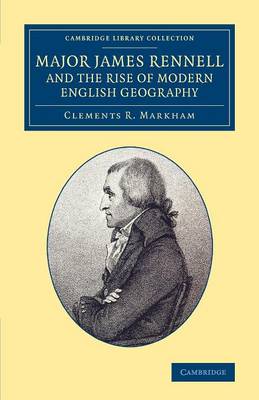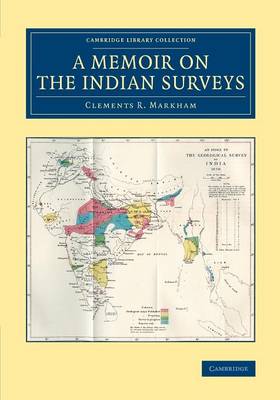Cambridge Library Collection - South Asian History
2 total works
Major James Rennell and the Rise of Modern English Geography
by Clements R Markham
Published 3 October 2013
In this 1895 survey of the life and works of James Rennell (1742-1830), the geographer and historian Clements R. Markham (1830-1916) describes him as 'the greatest geographer that Great Britain has yet produced'. The book was published in the 'Century Science Series', which narrated the lives and works of exemplars in each area of science, and Markham goes on to explain why Rennell should be the chosen representative of geography. 'He was an explorer both by sea and land, a map compiler, a physical geographer, a critical and comparative geographer, and a hydrographer.' Rennell is probably best remembered for the surveys of western Asia (also reissued in this series) in which he attempted to match modern to classical sites, but his professional career was spent as an army surveyor in India and Africa. Markham's account of Rennell's life concludes with an examination of his geographical legacy.
Sir Clements R. Markham (1830-1916), the doyen of historical geography in the late nineteenth century, published this comprehensive work on British surveys of India in 1871, at the request of the Indian Office. As he states in his preface, the object of his book is 'to furnish a general view of all the surveying and other geographical operations in India from their first commencement', so that there was a ready source of information on work already done, both for readers of current surveys and also for the surveyors themselves. Markham begins with the earliest European exploration of the Indian Ocean, including the earliest voyages of the East India Company. Systematic land surveying in India, begun by Major James Rennell, remained in military hands through the period of the trigonometric and topographical surveys, and Markham also covers the geological, archaeological and astronomical surveys of the subcontinent in the nineteenth century.

